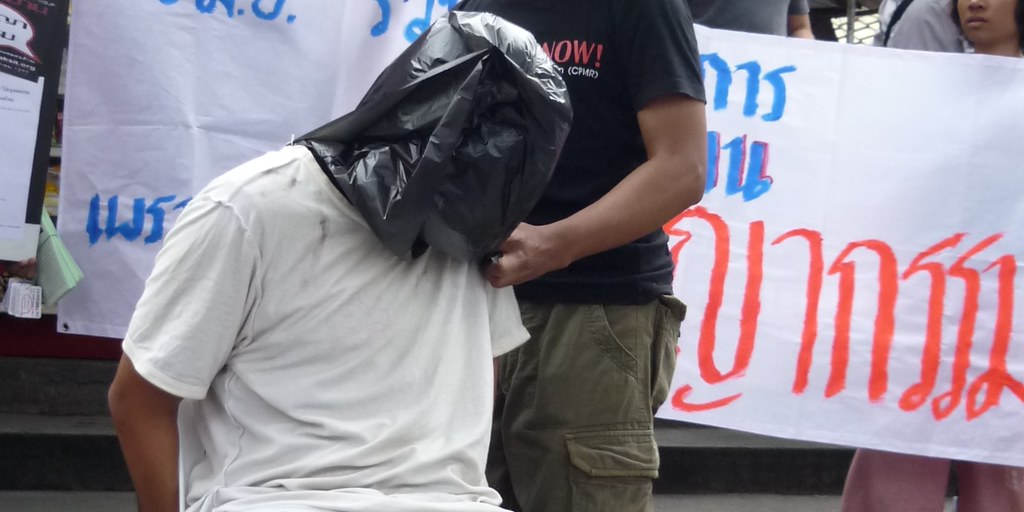On 4 October 2021, the UN Human Rights Office for South-East Asia welcomes Thailand’s initial approval of the draft law on Prevention and Suppression of Torture and Enforced Disappearance and urges the Government to ensure the legislation fully meets international human rights standards and enact it promptly.

File photo
The draft law was approved on 16 September for review by Thailand’s House of Representatives, and the Ad-Hoc Committee appointed to review it is expected to start its consideration on 5 October.
Thailand ratified the Convention against Torture and Other Cruel, Inhuman or Degrading Treatment or Punishment (CAT) in 2007 and signed the International Convention for the Protection of All Persons from Enforced Disappearance (ICPPED) in 2012. But it has ratified neither the ICPPED nor the Optional Protocol to the Convention against Torture and other Cruel, Inhuman or Degrading Treatment or Punishment (OPCAT).
In 2016, during its second cycle Universal Periodic Review (UPR) – a unique process which involves a review of the human rights records of all UN Member States – Thailand voluntarily pledged to become a party to several international treaties, including the ICPPED and the OPCAT. In its mid-term report for its second cycle UPR in 2019, Thailand stated that it will accede to the ICPPED only after the national law criminalizing torture and enforced disappearance is enacted.
The draft law incorporates key international principles of non-derogability of torture and non-refoulement, but the critical definitions of the crimes of torture and enforced disappearance are not in line with international law. The law also lacks penal provisions related to cruel, inhuman and degrading treatment or punishment. In addition, it does not address the issue of the inadmissibility of statements and other information obtained by torture, cruel, inhuman or degrading treatment as evidence in legal proceedings.
“We call on the Thai Government to enact, without further delay, a bill that includes all the relevant and necessary elements to ensure its full compliance with international standards and to realize its 2016 UPR voluntary pledge to ratify the ICPPED and the OPCAT,” said Cynthia Veliko, Regional Representative of the UN Human Rights Office for South-East Asia.
Prachatai English is an independent, non-profit news outlet committed to covering underreported issues in Thailand, especially about democratization and human rights, despite pressure from the authorities. Your support will ensure that we stay a professional media source and be able to meet the challenges and deliver in-depth reporting.
• Simple steps to support Prachatai English
1. Bank transfer to account “โครงการหนังสือพิมพ์อินเทอร์เน็ต ประชาไท” or “Prachatai Online Newspaper” 091-0-21689-4, Krungthai Bank
2. Or, Transfer money via Paypal, to e-mail address: [email protected], please leave a comment on the transaction as “For Prachatai English”
